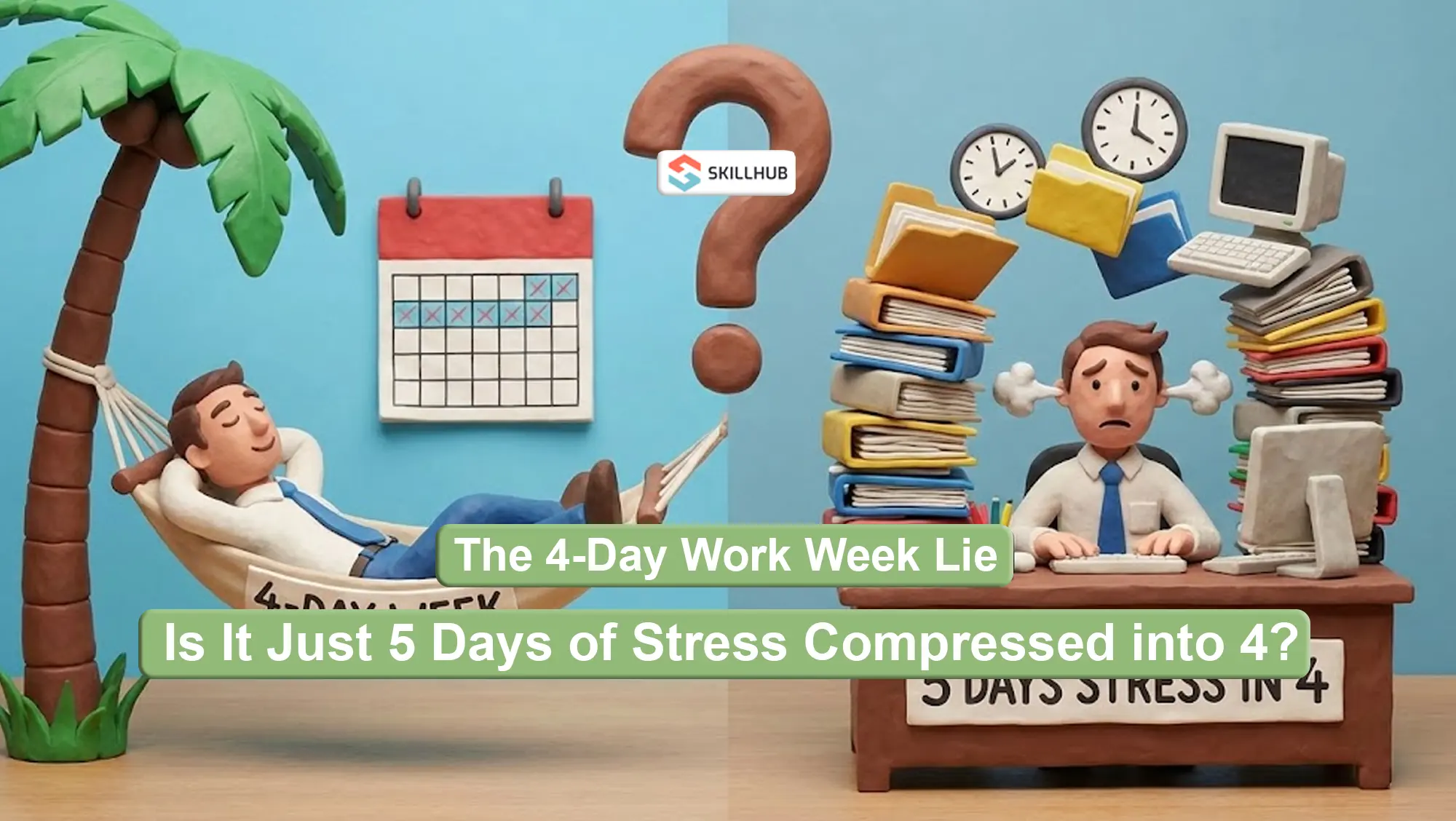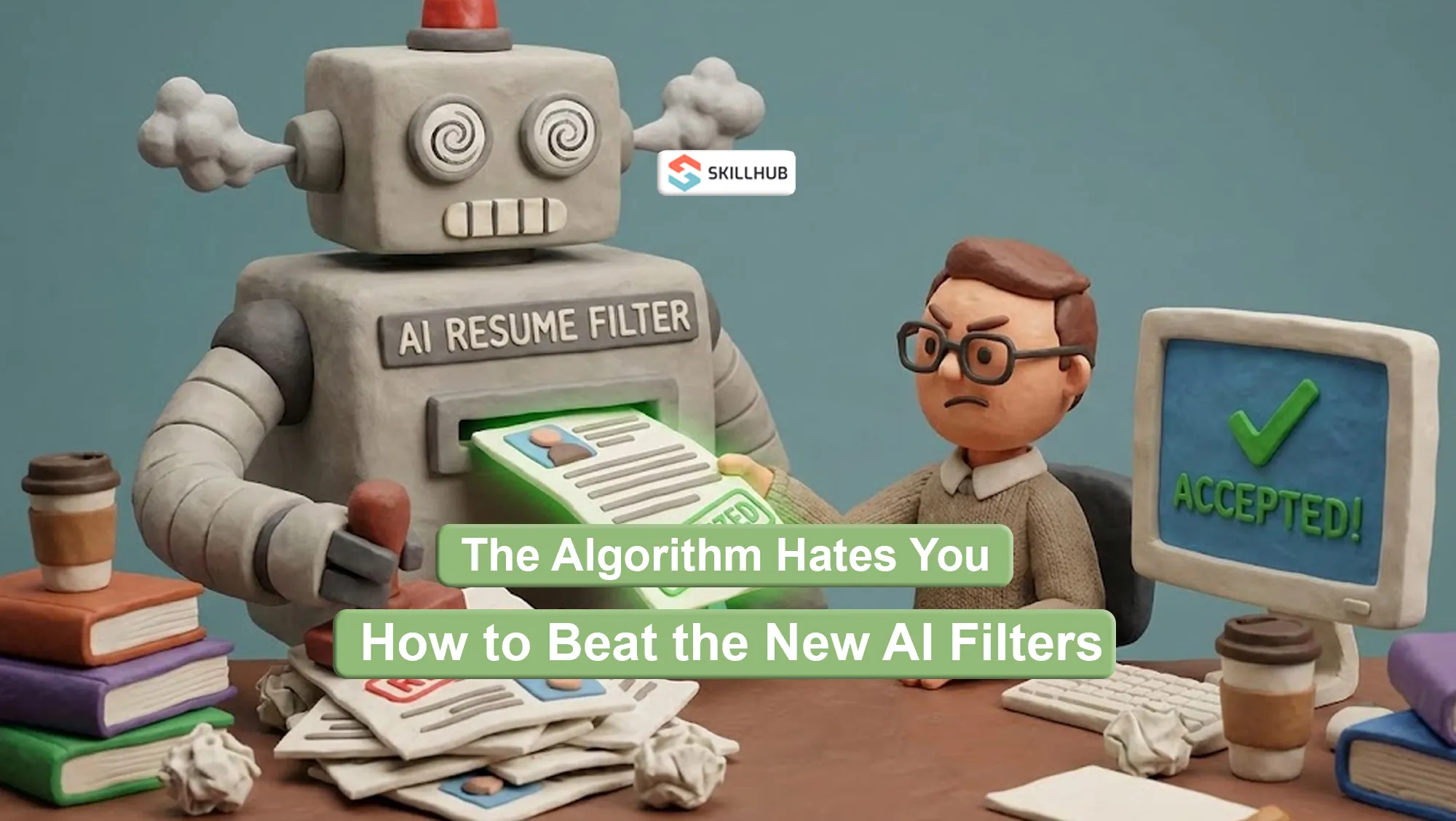The Future of Work: Skills You Will Need Soon

It’s rather hard not to notice how rapidly all spheres of our lives have been changing over the past years. The technology industry keeps evolving, bringing more and more innovations to educational, medical, business, and many other sectors. And, it’s impossible not to mention Covid-19, which seems to have changed absolutely everything.
If you ask us what sphere has undergone the biggest changes, we would probably say it’s the workforce. The future of work now looks much different for both employers and job seekers than we could ever imagine.
What is in the future for us? From what we’ve seen during the Covid we can conclude that managing a remote workforce is the future. The work from home model is becoming extremely popular and it is likely here to stay.
Are you experience anxiety about the future of work? Learn more from Jobs of the future 2025-2035: A Complete Overview of the Top 14 Professions.
Also, we expect to see a major shift to automation and, respectively, a decrease in the number of available career paths. We also expect recruiters to look for other types of skills.
In this post, we are going to look at these and other main trends and differences that will shape the workforce of tomorrow.
What Is the Future of Work?
Later in this article, we are going to discuss what exactly waits for us in our professional future. But, before we get there, it is vital to understand what the term “the future of work” means.
In a nutshell, it is a general term used to speak about the future work market. It gets down to predicting what it will feel like to continue working in the future and what you’ll need for success. Namely, this term is used to predict future workforce trends such as common employment models, key skills, and specific job positions that will be relevant in the next 5-20 years.
What shapes the future of the workforce? There are multiple factors that influence this concept. Namely, the future of employment is influenced by progress, trends, and challenges facing the labor market at this time.
Currently, some of the biggest triggers of changes are automation, robotics, and artificial intelligence. All these factors are gaining momentum and have the potential to reduce the number of jobs for which companies will have to hire humans. Simply put, due to the automation of business processes and the use of robotics and AI to perform a variety of tasks, it is predicted that many people will suffer from job loss.
Most in Demand Skills for the Future
Here are some of the main in-demand skill sets that will help you secure a future occupation:
- Social and emotional - To get employed in the future, you will be expected to show solid empathy, communication, adaptability, as well as intentional learning skills.
- Higher cognitive - It is predicted that such cognitive skills as critical thinking, writing, advanced literacy, statistical skills, and quantitative analysis will be of the utmost importance to employers in the future.
- Technological - Finally, we expect technology and jobs to get even more connected in the future, so such tech skills as data analysis, IT, engineering, and others will be in demand.
The Rise of Remote Work
Many of us have heard a lot about a work-from-home employment model during the last years. The trend for working remotely has emerged a while ago and kept evolving as more and more specialists were getting attracted by the idea of being able to work from anywhere. So you'll need to consider professional resume writers to raise your chances if you want switch a career. But, the real rise of remote work took place in the early 2020.
The outbreak of the Covid-19 pandemic forced millions of people from all over the world to switch to a remote employment model. And this gave a rise to a larger trend toward a more flexible work future.
Before the global pandemic, many people, though were attracted by the idea of working from home, never took the risk to make this transition. But, when the Covid-19 hit, it turned into a global trend literally overnight. And we believe that it will be here to stay in the long-term perspective.
According to surveys, over 95% of people who were forced to work remotely would prefer to continue doing so in the future. 29% of respondents even claim that they would rather quit their jobs than go back to the office again.
Based on this, it is predicted that most of us will work remotely (either part-time or full-time) in the future. This shift is already evident in various fields, including higher education where remote higher education jobs are becoming increasingly common as universities and institutions embrace online learning.
Managing a Remote Workforce - Proven Practices by Leaders
As we already said, remote work is one of the biggest trends we expect to see in the future. However, although this trend is evolving, many companies are still not ready for the time when it’s finally here.
Here are some of the proven practices of managing a remote workforce that will help you prepare for the future:
Consider asking potential workers to take behavioral and personality tests. This practice will help you ensure that remote workers fit in your corporate culture and are capable of working remotely.
—Scott McGrath
Give thorough job descriptions and set clear expectations. The clarity in duties, tasks, and expectations is the key to managing remote workers properly and making sure that work is getting done.
—Rolf Gehrung
Don’t pay much attention to the process. When managing a remote team, it’s wiser to focus on what things are getting done instead of monitoring how they are getting done. Such an approach will let your workers do their tasks in the way that is most convenient for them and, thus, boost their productivity at home.
—Brian Kropp
Supply workers with the right management tools for clients, along with software and support. The best way to avoid issues is to make sure that your remote workers have everything they need to do their work from home. Implementing a secure web gateway can add an extra layer of security, ensuring safe access to company resources and reducing cyber risks for remote employees.
—Natalie Cloutier
Workforce Ecosystems
The future of work implies a transition to much different, flexible workforce ecosystems.
In a nutshell, a workforce ecosystem is a well-defined organizational structure that considers all workforce members within the same company as separate elements of a whole ecosystem where each independent unit performs designated tasks to pursue both individual and shared goals.
Due to the rise of remote working, workforce ecosystems of the future will be more expanded and more flexible. Also employees will know how to add a resume on Linkedin. Soon, these ecosystems will cover and manage the workforce not only within, but also beyond the enterprise as more and more companies start using alternative work arrangements (e.g. service providers, remote workers, freelancers, etc.).
Writing a resume yourself can be difficult, but our resume builder service can do this job for you. And if you want your current resume to be rearranged, we can help you as well!
Need professional help? Turn to the best experts in the niche. Custom resume writing service near me is a smart solution.
Focus on Workforce Ecosystems
Now that you know that alternative workforce ecosystems will also shape our work future and also know what workforce ecosystems are in the first place, let’s figure out why it’s important to focus on them.
Basically, workforce ecosystems perform several roles:
- Add structure to the enterprise.
- Ensure that crucial management processes are coordinated smoothly and appropriately throughout the company.
- Align values, norms, and goals across all departments and employees.
- Ensure that all workers perform the right roles in the enterprise.
In this part of our guide, we will tell you about the main points for creating and managing the future employee ecosystems right.
Higher reliance on alternative workers
First of all, it implies adopting alternate work arrangements. The key trend will be to delegate big chunks of work to non-employees.
To expand their work net, companies will open opportunities to alternative workers, including freelancers, contract workers, as well as specialists who engage in short-term projects. This will transform overall workforce ecosystems into more diversified ones, where people of all backgrounds come together to work towards shared goals.
What does this mean in practice? For employers, in particular, this implies new, different ways of managing their ecosystems. Namely, the keys to success will include a better organization, emphasis on communication, as well as more adaptability and flexibility in everything your team does—supported by solutions like on-premise unified communications that ensure secure, centralized, and reliable collaboration.
The nature of future work is evolving
Currently, a typical workforce ecosystem can be defined as “all work and no play.” Most companies are primarily made up of full-time, in-house employees, each performing a large chunk of work. In the future, these ecosystems are expected to rely more on alternative workers assigning them to do more work for business.
In a longer perspective, this new ecosystem can change the nature of future work for the better. With proper management, it can help improve the overall ambiance within the company, foster a positive attitude, and ensure a better work-life balance for employees. However, for this to become a reality, employees also need to develop new skills, such as teamwork, cohesion, and communication.
Mindsets are more important than skill sets
More diversified and flexible ecosystems together with a larger number of people who are working remotely require us to change our mindsets in order to ensure a seamless and efficient workflow. Therefore, to maintain a positive environment for the entire team, companies will have to focus more on a work mindset than on skill sets.
In the future, companies and their in-house employees will connect with people of various ethnicities, backgrounds, abilities, and races. So, if you are wondering how to change mindset at work to stay competitive in the future, start by fostering a positive attitude, flexibility, and open-mindedness.
Don't forget about a cover letter! 77% of recruiters said they would give preference to a job candidate who sent a cover letter. Do it yourself (click professional cover letter examples on Skillhub) or skill up your resume with the help of our best cover letter writing service over there.
Main Directions | The Future of Work
As we said, there are many different factors that can shape our work future. Some of these factors are technological progress, emerging trends, and other external circumstances.
Of course, it is hard to make a 100% accurate prediction since these factors are extremely dynamic and change rapidly. However, with the help of analytics, research, surveying, and other methods of data collection and analysis, experts can at least identify the main directions that have the highest likelihood of being a part of the future of work.
In the list below, we have collected the four main directions you should know about:
Office Never Be the Same
In the next 5-10 years, companies are expected to rethink office spaces for their future workforce. First of all, companies are expected to create an even more interactive and flexible space for every employee. And, also, there is a huge likelihood that there will be a shift to virtual offices.
More Robots and Fewer Jobs
The automation and the future of jobs are closely connected. In our current understanding of the future of jobs, there is a place for a job loss to automation. It’s predicted that nearly 15% of jobs can be fully automated, with another 32% that are likely to be partially automated. And more robots ultimately means fewer jobs.
The Most in Demand Jobs
Of course, the future of employment is predicted to raise the demand for tech jobs like Cyber Security Expert, Robotics Engineer, Software Developer, UX Designer, Data Analyst, etc. But, it is also expected that such jobs as Nurse, Agronomist, Caregiver, Accountant, and Epidemiologist will remain in high demand as well. As decentralized technologies continue to evolve, web3 careers are emerging as a powerful alternative for professionals seeking autonomy, innovation, and borderless opportunities.
Knowledge Workers" Are Required
The last of the future insights we’d like to share with you is that specialists predict a growing demand for knowledge workers (e.g. scientists, analysts, accountants, engineers, etc.). According to executive resume writing service, knowledge workers will become the most valuable assets of every future organization thanks to their creativity and productivity.
Key Factors Influencing the Work in the Future
At this point, the biggest triggers that influenced the future of working include the rise of remote working, the trend for an automated workforce, and, of course, the global Covid-19 pandemic. However, in the larger perspective, there are four main factors that influence:
These factors are:
- Globalization. Globalization can create new demands for the workforce, but also introduce positive changes.
- Technological progress. This can include all sorts of innovation. For example, when we discuss the relation between automation and jobs loss, this change took place because of technological progress. But, it’s worth noting that technological progress can not only reduce the number of jobs but also create new jobs and opportunities.
- Demographic, social, and environmental changes (e.g. Covid-19).
- Labour flexibility. Finally, the flexibility of the labor market (i.e. the speed at which companies respond to the changing market conditions) also leaves a footprint on the future of work.
Do you have questions about the the future of work? Did we miss any future resume tips? What do you think of the future of the work trends?
It would be appreciated if you shared it on social media! Let’s get the conversation going live.
Do you still have doubts about your resume skills? Address our top resume edit service. Our resume writers will handle the task quickly and even adjust your old resume to a new job position if need be.
%20(1).png)



%20(1).webp)